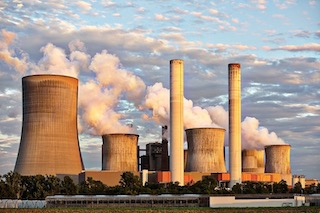Electrical power systems account for over 40 % of China’s total CO2 emissions, with 56 % of electricity generated by thermal power plants as of 2022. Flexibly-operated carbon capture and storage (CCS) has been proposed as an effective measure for decarbonizing coal-fired power plants, offering lower capture costs and energy penalties than those of conventional CCS. This study characterizes the operation of flexible carbon capture power plants (CCPPs) in large-scale power system with variable renewable energy and quantifies the system-level environmental and economic benefits of the synergies between flexible CCPPs and variable renewable energy. Hourly analysis suggests that flexible CCS would reduce energy consumption during peak demand periods and operate at full load during off-peak periods to utilize otherwise curtailed renewable electricity. Across a broad search space for flexible CCS installations and capture configurations, we found a complex interaction between mitigation costs and total carbon reductions. Under a 10 % CCS installation rate on coal-fired plants, the lowest mitigation cost is 269 CNY/tCO2 (37 USD/tCO2, as of 2024) when installing flexible CCS with 4 h of solvent storage and a 70 % average capture rate, resulting in a 9.8 % reduction in power system carbon emissions. To fully realize the benefits of flexible CCPPs in future power systems, both policy incentives and optimal operations are required. Concerning the practical deployment of CCS, we further discussed the opportunities for near-term CCS deployment with the flexibility to increase carbon stringency over time.
Recommended citation:
Li, J., Zhang, C., Davidson, M. R., & Lu, X. (2025). Assessing the synergies of flexibly-operated carbon capture power plants with variable renewable energy in large-scale power systems. Applied Energy, 377, 124459. https://doi.org/10.1016/j.apenergy.2024.124459

